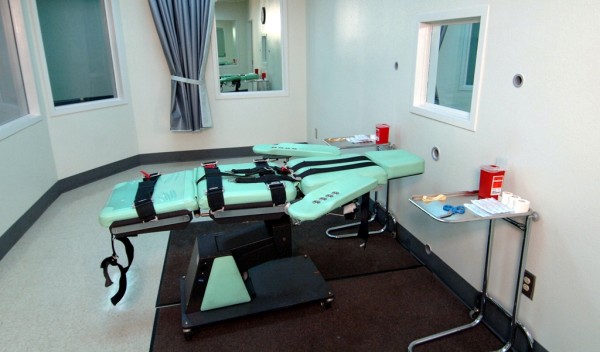A record 111 countries voted Thursday for a moratorium on capital punishment at a keynote UN General Assembly human rights meeting.
Although not legally binding, campaigners say the vote held every two years sends a strong signal to the slowly shrinking number of nations — including China, Iran and the United States — that still execute prisoners.
There were 111 votes in favor of a moratorium, four more than in 2010.
Among the 41 countries that voted against the moratium were the United States, China, Japan, India, Iran, North Korea and Saudi Arabia. Thirty-four countries abstained.
European nations have pressed hard for votes backing a moratorium. But Norway’s ambassador Geir Pedersen said the growing numbers backing an end to capital punishment show “this is no longer dominated by western countries. This is a global campaign.”
“The importance of the vote is that it sends a very strong message to the international community across the board,” Pedersen told AFP. “The General Assembly is the one place where all nations are represented and you have a strong majority in favor of a moratorium.”
“There is a global trend toward fewer countries executing people and for us, it is an important issue of principle,” the ambassador added.
Pedersen said that when he raises objections to the death penalty in bilateral talks with countries that impose capital punishment, “we have the feeling that they are on the defensive.”
About 150 countries now have a moratorium or an outright ban on capital punishment. Just 21 nations were reported to have carried out executions in 2011, according to rights groups.
But the rights groups said the countries that still carry out executions remain hardcore.
China executes thousands of prisoners a year, rights groups say, and Iran put to death more than 650 people in 2011, making it the highest per capita executioner.
Some countries defended maintaining their capital punishment at a UN committee meeting last month where 110 countries voted for a moratorium. Japan said it had to keep the possibility of hanging prisoners because “heinous” crimes are still being committed.
Thursday’s vote was held a day after UN Human Rights Commissioner Navi Pillay called on Iraq to move toward abolishing the death penalty.
Iraq executed 70 people in the first six months of this year, compared to 67 for the whole of 2011, and 18 in 2010, according to the UN mission in the country.
“The number of executions so far in 2012, and the manner in which they have been carried out in large batches, is extremely dangerous, cannot be justified, and risks seriously undermining the partial and tentative progress on rule of law in Iraq,” Pillay said.
A world congress against the death penalty is to be held in Madrid in June.
© ANP/AFP










